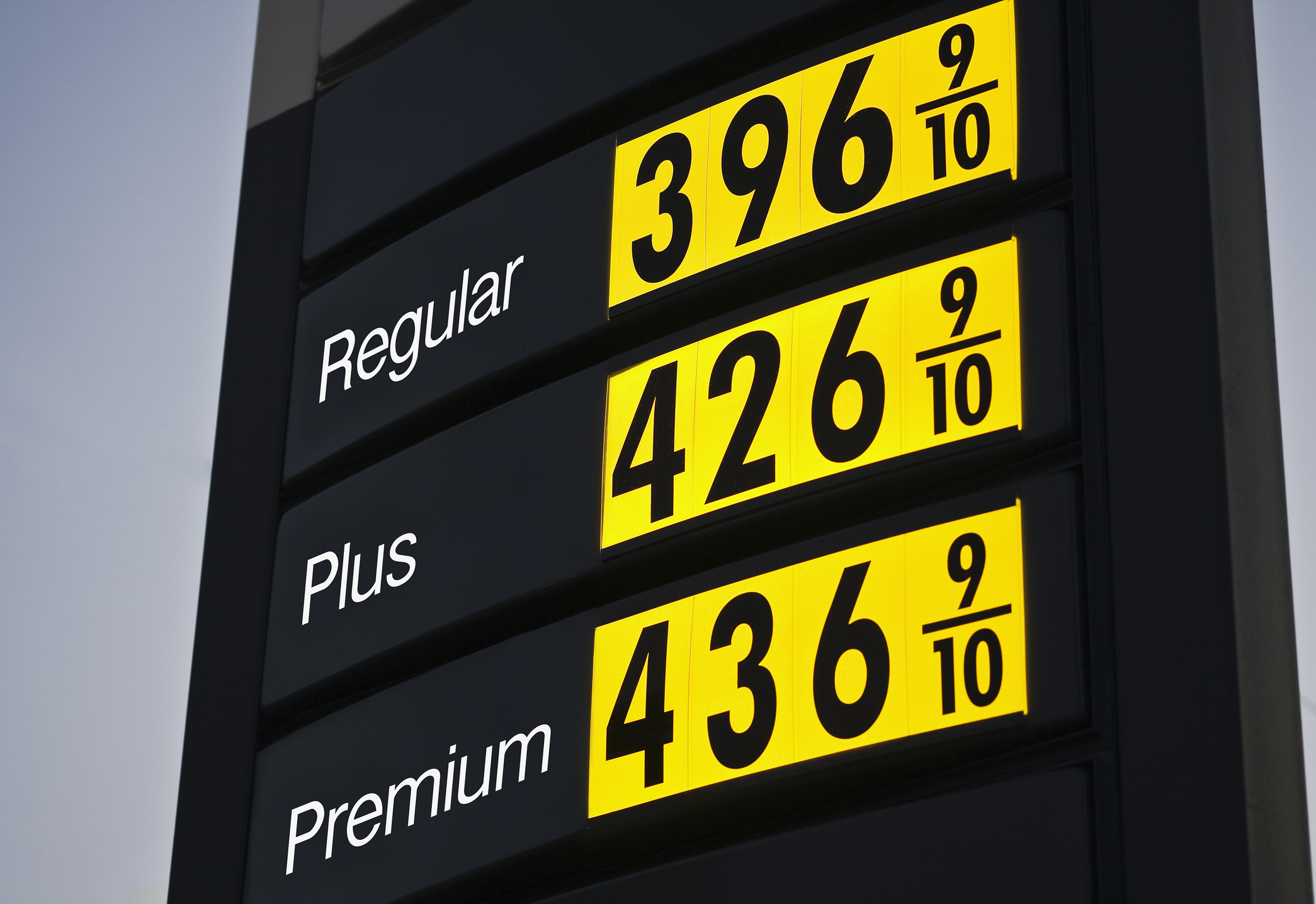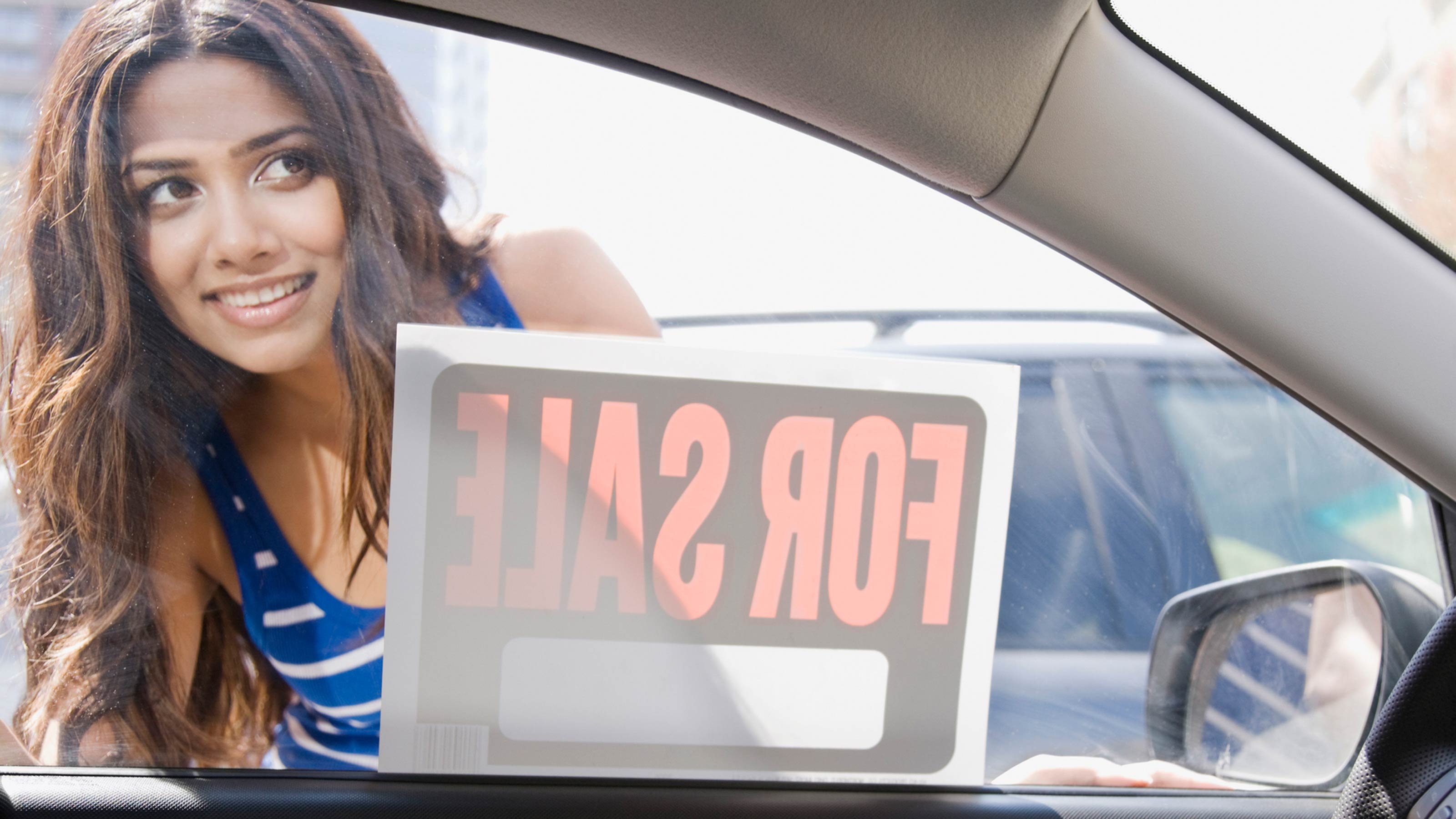It's a Good Time to Lease
Even nonluxury brands are promoting leases. You can lease a Honda Fit for $210 a month.

Profit and prosper with the best of Kiplinger's advice on investing, taxes, retirement, personal finance and much more. Delivered daily. Enter your email in the box and click Sign Me Up.
You are now subscribed
Your newsletter sign-up was successful
Want to add more newsletters?

Delivered daily
Kiplinger Today
Profit and prosper with the best of Kiplinger's advice on investing, taxes, retirement, personal finance and much more delivered daily. Smart money moves start here.

Sent five days a week
Kiplinger A Step Ahead
Get practical help to make better financial decisions in your everyday life, from spending to savings on top deals.

Delivered daily
Kiplinger Closing Bell
Get today's biggest financial and investing headlines delivered to your inbox every day the U.S. stock market is open.

Sent twice a week
Kiplinger Adviser Intel
Financial pros across the country share best practices and fresh tactics to preserve and grow your wealth.

Delivered weekly
Kiplinger Tax Tips
Trim your federal and state tax bills with practical tax-planning and tax-cutting strategies.

Sent twice a week
Kiplinger Retirement Tips
Your twice-a-week guide to planning and enjoying a financially secure and richly rewarding retirement

Sent bimonthly.
Kiplinger Adviser Angle
Insights for advisers, wealth managers and other financial professionals.

Sent twice a week
Kiplinger Investing Weekly
Your twice-a-week roundup of promising stocks, funds, companies and industries you should consider, ones you should avoid, and why.

Sent weekly for six weeks
Kiplinger Invest for Retirement
Your step-by-step six-part series on how to invest for retirement, from devising a successful strategy to exactly which investments to choose.
Leasing isn't for everyone, but many more people should probably do it. Typically, fewer than 20% of new-car transactions are leases. And not only did the weak economy scare away buyers, it also shrank the number of leasers by half. If you always have a car payment because you trade in frequently, you may find that leasing makes sense.
1. Lease deals abound. Increased demand for used cars this year has led to a decreased supply of them -- and higher prices. Manufacturers translate strong pricing in the used-car market into higher long-term residual values -- what their new vehicles are likely to be worth down the road. Stable or rising residual values mean leasing companies are less likely to lose money when leasers turn in their vehicles. Thus, automakers are eager to push leasing deals now, says Tarry Shebesta, president of LeaseCompare.com. Even nonluxury brands, such as Honda and VW, are promoting leases. You can lease a 2010 Honda Fit for $0 down and just $210 a month.
2. You could get more car for your money. Your monthly payments are less because you're paying only for the term of the lease. That's the main reason up to half of luxury-vehicle transactions are leases. For example, BMW is offering a 36-month lease on a 2011 335i sedan for $519 a month, with no money down. To purchase the same car with a 0.9%, five-year loan that BMW is offering now and $4,550 down, the payment would be $698.
From just $107.88 $24.99 for Kiplinger Personal Finance
Become a smarter, better informed investor. Subscribe from just $107.88 $24.99, plus get up to 4 Special Issues

Sign up for Kiplinger’s Free Newsletters
Profit and prosper with the best of expert advice on investing, taxes, retirement, personal finance and more - straight to your e-mail.
Profit and prosper with the best of expert advice - straight to your e-mail.
True, if you pay cash or keep the car well beyond the time the loan is paid off, you usually come out ahead by buying. But if you still have a car payment when you trade in, you'll be hard-pressed to get enough on the trade-in to pay off the loan. When you lease, you pay only the difference between the purchase price and the residual value written into the contract. If the car turns out to be worth less, the leasing company takes the hit, not you.
3. You can negotiate. Leasing has its own lingo, and it's tougher to negotiate when you need a translator. Start with the capitalized cost -- the price of the car -- and haggle just as hard as if you were buying it. Then look at the money factor, which is the interest rate (multiply it by 2,400 to get an estimate of the annual percentage rate); lower is always better. If there's no chance you'll buy the car after your lease term is up, a higher residual value is better because it will lower your payments. Just as when you're buying a car, make the dealer compete for your business. Besides shopping other dealers, check LeaseCompare.com for deals.
4. End-of-lease fees aren't so bad. If you maintain your car well, you shouldn't have to worry. Regardless, before the leasing company inspects the vehicle -- about a month before the lease ends -- get the vehicle detailed. It'll cost $100 or so but can buff out surface scratches and make the car look well cared for. If you have a ding or a dent, fix it. Otherwise you may be socked with excess wear-and-tear charges, which average $500 to $800.
Annual mileage allotments typically range from 10,000 to 12,000 miles, and overages will cost you 18 to 25 cents per mile. If you know you'll exceed the allotment, buy more miles at a lower cost upfront. You can buy extra miles at any time, notes John Sternal, of LeaseTrader.com, but the price goes up the closer you get to the end of your lease.
5. You can get out early. Thanks to lease-swapping sites such as LeaseTrader.com and Swapalease.com, which match people who want to get out of a lease early with those who want to assume a short-term lease, you can exit a lease before it's up. But it will cost you. At LeaseTrader.com, you pay a fee of $89 to post your vehicle's information and a $149 transfer fee. The leasing company may also charge a transfer fee. For example, Nissan charges $75; Mercedes charges $595.
Profit and prosper with the best of Kiplinger's advice on investing, taxes, retirement, personal finance and much more. Delivered daily. Enter your email in the box and click Sign Me Up.

-
 How Much It Costs to Host a Super Bowl Party in 2026
How Much It Costs to Host a Super Bowl Party in 2026Hosting a Super Bowl party in 2026 could cost you. Here's a breakdown of food, drink and entertainment costs — plus ways to save.
-
 3 Reasons to Use a 5-Year CD As You Approach Retirement
3 Reasons to Use a 5-Year CD As You Approach RetirementA five-year CD can help you reach other milestones as you approach retirement.
-
 Your Adult Kids Are Doing Fine. Is It Time To Spend Some of Their Inheritance?
Your Adult Kids Are Doing Fine. Is It Time To Spend Some of Their Inheritance?If your kids are successful, do they need an inheritance? Ask yourself these four questions before passing down another dollar.
-
 10 Things You Should Know About Buying a Car Today, Even if You've Bought Before
10 Things You Should Know About Buying a Car Today, Even if You've Bought BeforeIf buying a car is on your to-do list, and it's been a while since you went shopping for a new one, this guide will help avoid any nasty shocks in the showroom.
-
 Get the Best Car Deal in Retirement: Here's the Trick
Get the Best Car Deal in Retirement: Here's the TrickPlanning on shopping for a new car this Labor Day weekend? Here’s how to haggle for a better price, even though you're retired.
-
 7 Gas-Saving Tips That Actually Work
7 Gas-Saving Tips That Actually WorkThese are gas-saving tips that will actually work for you and your car this year.
-
 Want to Lease an EV? The Tax Credit 'Loophole' for That Is Going Away Soon
Want to Lease an EV? The Tax Credit 'Loophole' for That Is Going Away SoonTax Credits If you are deciding whether to lease or buy an electric vehicle, here is what you need to know about how the EV lease tax credit works now that it will be eliminated under Trump's new tax law.
-
 Car Buying in a Topsy-Turvy Market
Car Buying in a Topsy-Turvy MarketYou need a new car? Good luck with that! What should you do? We've got some answers.
-
 Watch Out for Flood-Damaged Cars from Hurricane Ian
Watch Out for Flood-Damaged Cars from Hurricane IanBuying & Leasing a Car In the wake of Hurricane Ian, more flood-damaged cars may hit the market. Car prices may rise further because of increased demand as well.
-
 Car Buyers: The 3-Day Grace Period Is Just a Myth!
Car Buyers: The 3-Day Grace Period Is Just a Myth!Buying & Leasing a Car Many car buyers think they have three days after making a purchase to return a car. Here’s where they’re going wrong, and what they should do instead to get a decent used car.
-
 PODCAST: Car-Buying in an Inflated Market with Jenni Newman
PODCAST: Car-Buying in an Inflated Market with Jenni NewmanBuying & Leasing a Car With cars both scarce and expensive these days, what to do if you want – or need – a new ride? Car-buying strategist Jenni Newman of Cars.com shares some tips. Also, more on the magical 9% savings bond.